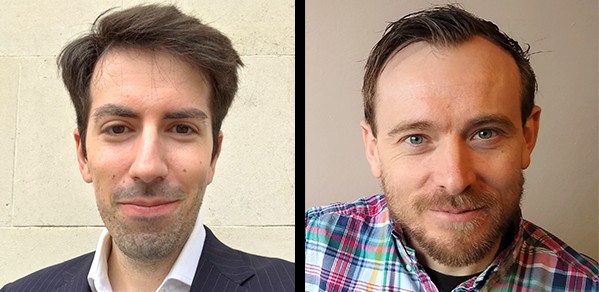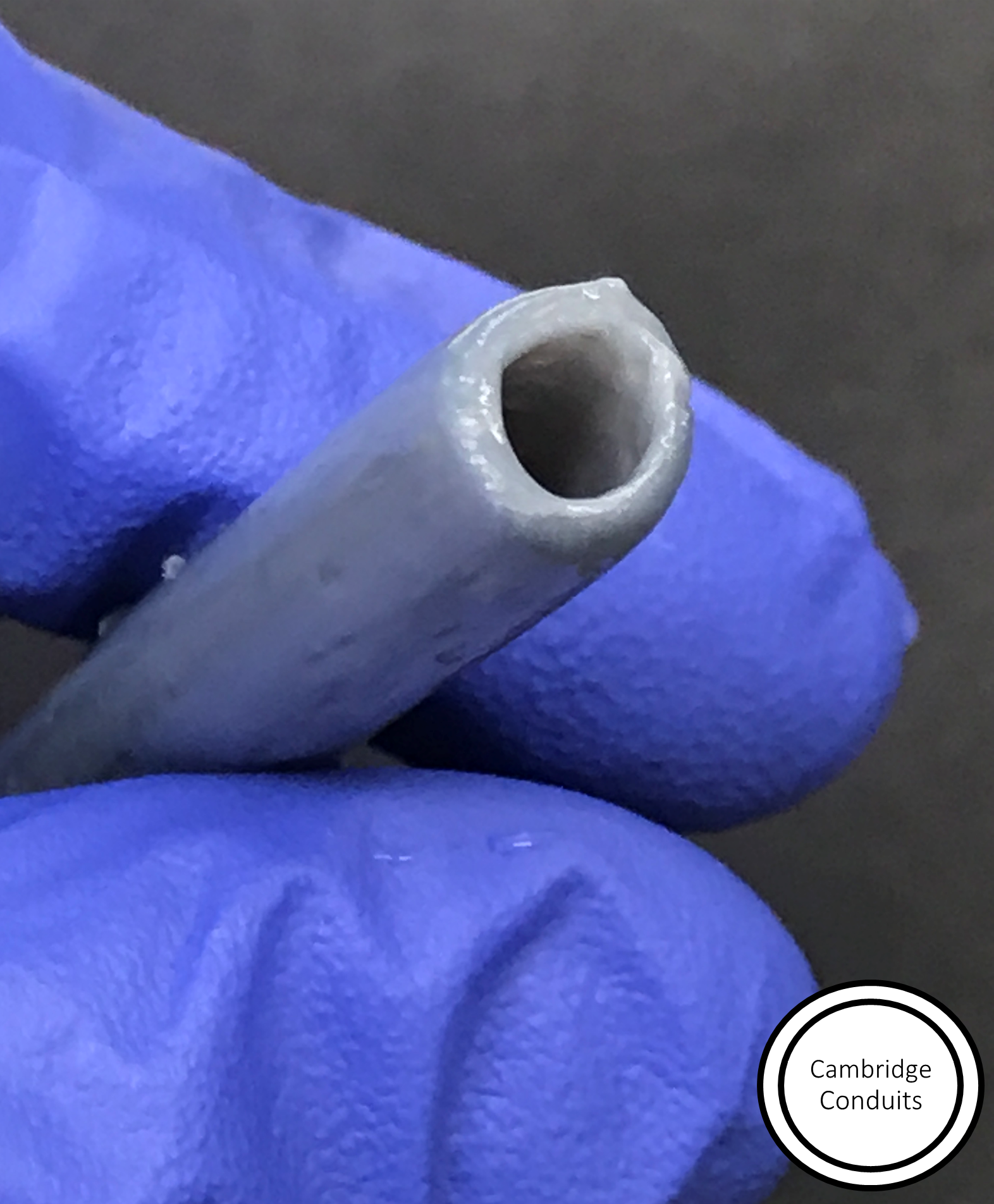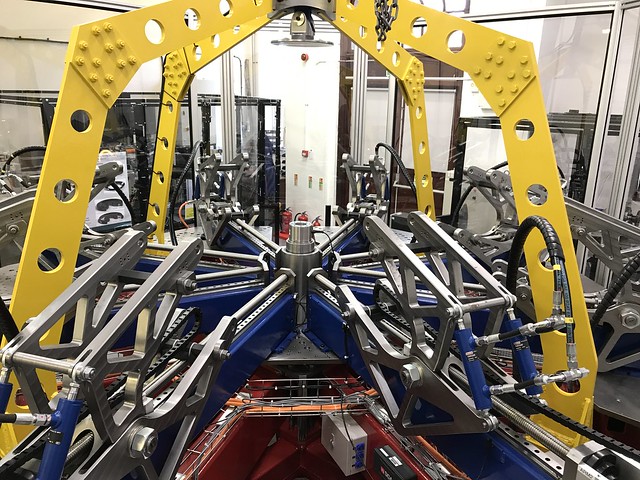
Two research associates from the Department of Engineering have won investment for their business plans in The Chris Abell Postdoc Business Plan Competition 2021. Dr Alex Justin won second prize for his early-stage company, Cambridge Conduits, which is developing bioengineered tissue grafts, and Dr Christopher Cleaver won third prize for his early-stage company, DeepForm, which is developing a new method of producing car parts using half the metal.
This competition has been a great experience. You receive a lot of support, the mentoring from external companies is really helpful, you are encouraged to think seriously about your company as a business and start conversations with potential customers.
Dr Christopher Cleaver
Run by Cambridge Enterprise and the Entrepreneurial Postdocs of Cambridge (EPOC), the competition has become a key annual event in the University’s entrepreneurial ecosystem.
Cambridge Conduits
Dr Justin works in the field of tissue engineering which seeks to generate new biological tissues and organs for transplant. As part of the Markaki group, his PhD at the Department of Engineering focused on vascularisation, which is considered a key problem in the fabrication of replacement tissue in the lab. Following his PhD, Dr Justin took up a postdoctoral position at the Department in which he investigated methods for the bioengineering of tubular grafts. His proposal is for the development of next-generation, off-the-shelf, bioengineered vessels (shown below, right) which can serve as a replacement for a wide range of diseased or damaged tissues in the human body.
Dr Justin won an investment prize of £10,000.
“Our collagen-based tubular grafts can be manufactured rapidly and inexpensively, without the use of cells, greatly reducing the regulatory burden and potentially enabling their use worldwide,” he said. “We have identified vascular access grafts for dialysis patients as an excellent beachhead opportunity in the vascular grafting space, where reducing infection rates and other complications is of paramount importance to improving clinical outcomes and reducing demand on healthcare providers."
However, vascular access grafts are just a first step, said Dr Justin.
“We want to revolutionise the treatment of human disease through our bioengineered tissue grafts, generating complex tissue types in the future and enabling new surgical treatments hitherto untapped.”
He added: “With the investment prize we plan to embed ourselves in the customers’ environment, ensuring our designs meet the technical requirements of the surgeons and commercial requirements of hospitals.”
DeepForm
Dr Cleaver works on novel manufacturing processes for improved resource efficiency and productivity and is part of the The Use Less Group, based in the Department of Engineering. His research covers new ways of shaping metal components: flexible ring rolling, folding-shearing and flexible metal spinning. His proposal is to produce better car body parts with half the metal, helping automakers reach zero manufacturing emissions. DeepForm will be a technology provider to metal stampers and car manufacturers.
Dr Cleaver, who is leading the commercialisation effort, won an investment prize of £5,000.
“Sheet metal is a big contributor to a car’s embodied emissions and almost half the metal purchased to make car bodies is trimmed off as scrap during production – that’s 1% of the world's industrial emissions. DeepForm is a technology that reduces the embodied CO2 by up to 40%, offering better parts with a fraction of the scrap,” he said. “DeepForm offers a new way to do sheet metal stamping using a three-stage process: clamp – fold – shear.
"To date, our research has focused on isolated ‘shrink corners’ with straight sidewalls, a shape which is challenging to produce without incurring a wrinkling effect on the metal. In DeepForm, the sidewalls are folded into position, leaving an incompatible piece of metal, which is then gripped and sheared, minimising the amount of waste metal generated.”
He added: “With the investment prize we will set up a feasibility study for DeepForm with our customers, as well as developing our branding and online presence.
“This competition has been a great experience. You receive a lot of support, the mentoring from external companies is really helpful, you are encouraged to think seriously about your company as a business and start conversations with potential customers.”
In order to support Dr Cleaver’s research, the Department of Engineering’s Design and Technical Services on-site workshop team helped to weld and assemble a new rig for metal forming. This also involved the machining and cutting of metal and the design and installation of an electrical control cabinet to control the motors.
This year’s Grand Finale, held virtually, attracted 130 attendees from across the University. Six finalists each presented a three-minute pitch covering their technology, the problem it addresses, the business proposition and the market. They then faced probing questions from the judging panel comprising Christine Martin, Interim Head of Seed Funds at Cambridge Enterprise; Heather Richards, Cambridge Enterprise Investment Committee; Chris Tapper, Associate at CIC; and Maximilian Ge, President of EPOC.


